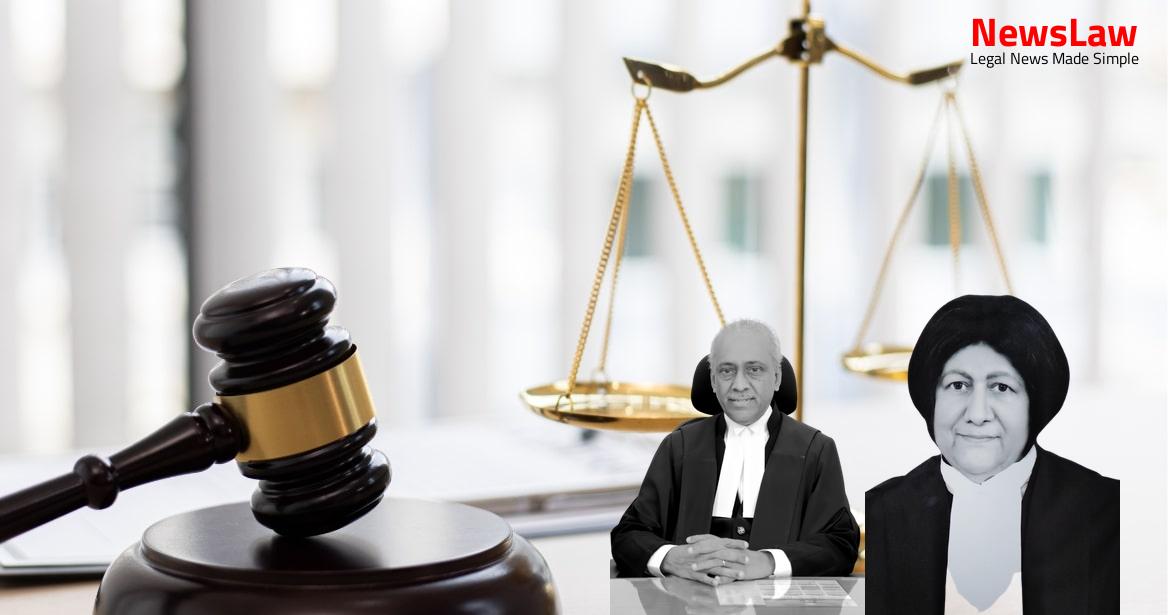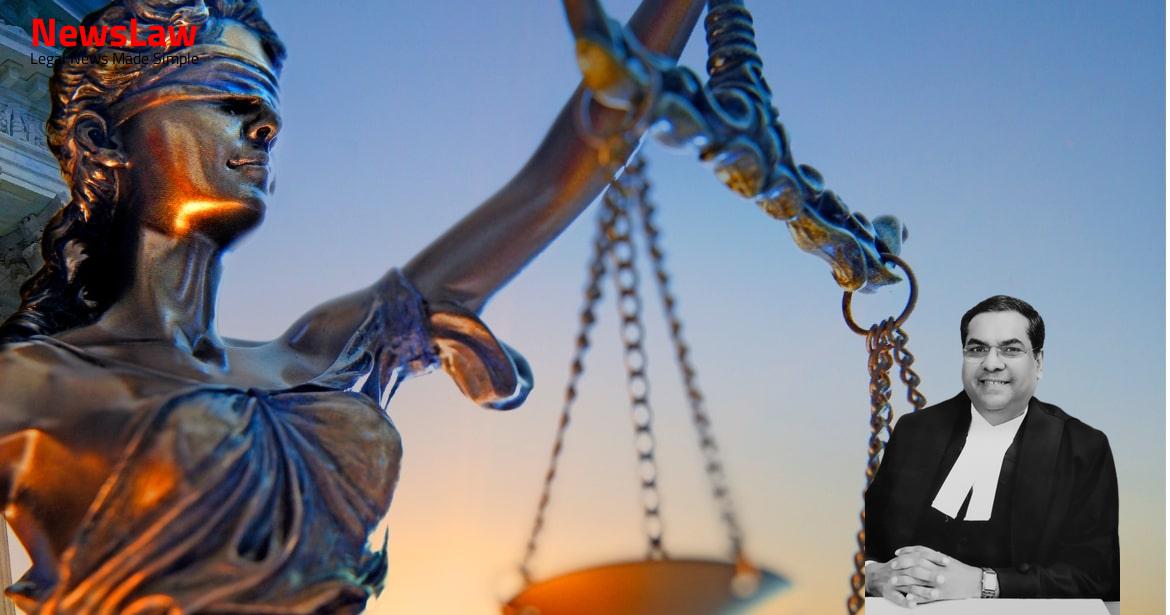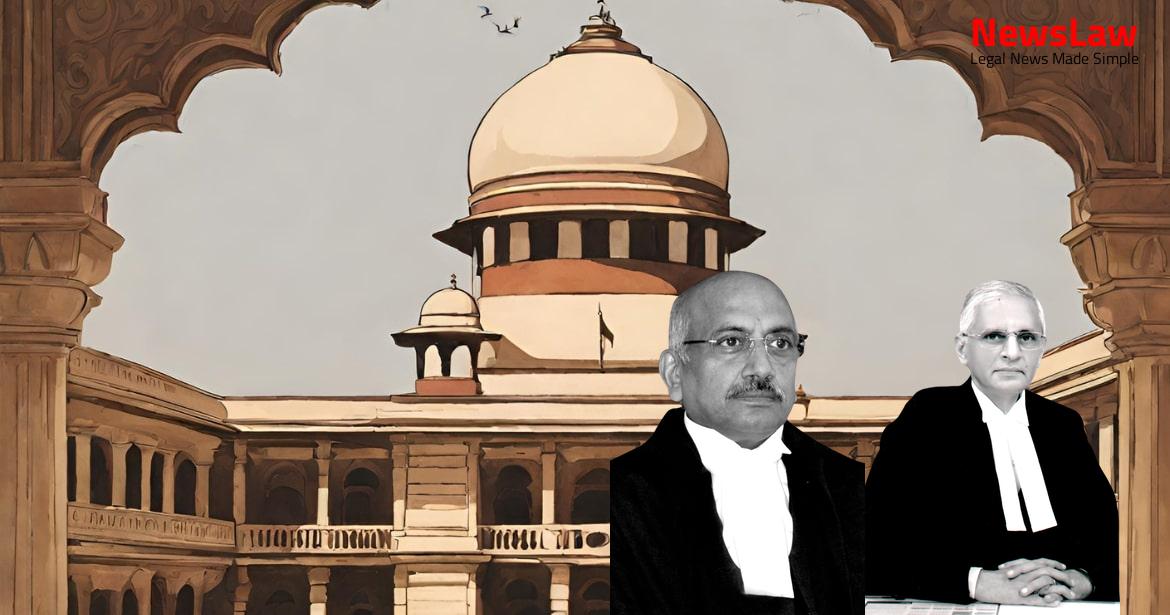Explore a case where the court dissected the significance of financial statements in the realm of legal acknowledgment under the Limitation Act. The crux of the matter lies in understanding how these statements can impact the limitation period for debt recovery. Let’s unravel the legal intricacies together!
Facts
- The Corporate Debtor repaid the amount disbursed by Bank of India under the loan agreement from funds disbursed by ADCB between August and December 2003.
- The settlement agreement between the parties involved the payment of Rs.150,75,83,970/- as the aggregate amount in default along with accrued interest at 22% per annum compounded monthly.
- There were disputes regarding the amount claimed by the Appellant under the IBC, with the Appellant revoking a settlement agreement and the High Court intervening on the matter of interest payable.
- Various extension requests were made by the Corporate Debtor for repayment, with partial payments being made along the way.
- The Appellant filed an application under the IBC leading to the initiation of the Corporate Insolvency Resolution Process against the Corporate Debtor.
- Legal proceedings, acknowledgments of liabilities, and requests for extensions characterized the interactions between the parties regarding the outstanding debt and interest.
- The disputes surrounding the principal amount claimed by the Appellant as well as the interest payable formed the crux of the contention between the parties.
Also Read: Interpretation of Corporate Guarantor under IBC
Arguments
- Mr. Nakul Dewan, Senior Advocate argued that not all financial statements issued by a company can be considered as acknowledgment for the purpose of Section 18 of the Limitation Act.
- He stated that mere issuance of financial statements does not necessarily extend the period of limitation under the Code.
- This argument was presented in the context of whether the financial statements could be considered as acknowledgment to extend the period of limitation.
- The Corporate Debtor has not made an unequivocal acknowledgment of debt in the Statements from 2014-2015 to 2016-2017.
- The interest sought to be recovered by the Appellant has been questioned by the Corporate Debtor.
- The case aligns with the ruling in Bishal Jaiswal where it was noted that the acknowledgment of liability needs to be examined on a case by case basis to determine its validity for extending limitation under Section 18 of the Limitation Act.
- The recovery in this case is not of public monies and is not beneficial to the public.
- There is no public funding involved in the subject transaction, such as holdings by Public Sector Banks.
- The Appellant’s reliance on Financial Statements from 2014-15 onwards as acknowledgments to save limitation was disputed by the Respondents.
- The Financial Statements from 2014-15 do not constitute an acknowledgment as per the Written Notes of submissions of the Corporate Debtor.
- In the Financial Statement for 2014-15, it is stated that ‘indebtness’ should be read with Note No.5 in the notes of Accounts.
Also Read: Quashing of FIR and Charge-sheet: Legal Analysis
Analysis
- The time stipulation of fourteen days in Section 7(4) to ascertain the existence of a default is apparently directory not mandatory.
- The Insolvency Resolution Process begins when a default takes place, in the sense that a debt becomes due and is not paid.
- Relegation of creditors to the remedy of coercive litigation against the Corporate Debtors could be detrimental to the interests of the Corporate Debtor and its creditors alike.
- The IBC is not just a statute for recovery of debts; it works towards the revival of a corporate body by appointment of a Resolution Professional.
- The provisions of the IBC should be construed liberally to further the objects of the statute.
- The period of limitation for an application under the IBC is three years from the date of accrual of the right to apply if no specific period is provided elsewhere.
- The balance-sheet signed on 14.5.2015 acknowledged the financial liability of the Corporate Debtor to the Appellant.
- An acknowledgment in writing by the Corporate Debtor before the expiry of the period of limitation can extend the limitation period by a further three years.
- The IBC aims to continue the commercial activities of the Corporate Debtor by appointing a Resolution Professional.
- The completion of the Corporate Insolvency Process is required within 180 days from the date of admission of the application.
- The judgment does not preclude considering affidavits or documents filed during the proceedings.
- Entries in a Corporate Debtor’s books of accounts or balance sheets can amount to an acknowledgment under Section 18 of the Limitation Act.
- An acknowledgment of liability made in a balance sheet can amount to an acknowledgment of debt.
- Applications under Section 7 or 9 of the IBC may be time barred, even if other recovery proceedings were initiated earlier for the same debt.
- Section 18 of the Limitation Act establishes the acknowledgment of present subsisting liability to commence a fresh period of limitation.
- Statements on which an acknowledgment is based should relate to a subsisting liability before the expiration of the limitation period.
- Acknowledgment extends the limitation period without creating a new right of action.
- Section 238 of the IBC states its provisions prevail over inconsistent laws or instruments.
- The Corporate Insolvency Resolution Process under the IBC is not adversarial to the interests of the Corporate Debtor.
- Sections 18 and 14 of the Limitation Act apply to proceedings under Section 7 or 9 of the IBC.
- The Adjudicating Authority in IBC applications only needs to confirm the existence of a debt and default.
- The acknowledgment must be made before the relevant limitation period expires.
Also Read: Interpretation of Director Liability in Dishonored Cheque Case
Decision
- The appeals are allowed, and the NCLAT’s judgment is set aside.
- The Corporate Debtor admitted its liabilities in financial statements from 2008-09 to 2016-17.
- The application under Section 7(2) of the IBC was filed on April 3, 2018, within the extended limitation period.
Case Title: ASSET RECONSTUCTION COMPANY (INDIA) LIMITED Vs. TULIP STAR HOTELS LIMITED (2022 INSC 777)
Case Number: C.A. No.-000084-000085 / 2020



